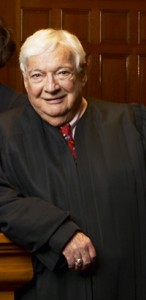SCOTUS: No Automatic Reversal of Conviction When Judge Improperly Participated in Plea Discussions
Federal Rule of Criminal Procedure 11 sets forth various requirements and prohibitions relating to guilty pleas, including a ban on judges participating in plea discussions. If there is a violation, Rule 11(h) specifies that a “variance from the requirements of this rule is harmless error if it does not affect substantial rights” — no harm, no foul. However, at least two circuits have adopted a rule of automatic vacatur of the guilty plea if the judge participated in plea discussions. Other circuits, including the Seventh, have applied the general 11(h) harmless error rule in these situations.
Earlier today, in United States v. Davila (No. 12-167), the U.S. Supreme Court unamimously resolved the circuit split in favor of the general harmless error rule. As the Court saw it, the legal question was an easy one: “[N]either Rule 11 itself, not the Advisory Committee’s commentary on the Rule singles out any instructions [in Rule 11] as more basic than others. And Rule 11(h), specifically designed to stop automatic vacaturs, calls for across-the-board application of the harmless-error prescription . . . .”
The Court declined to adopt any bright-line rules regarding the application of the harmless-error rule: “Our essential point is that particular facts and circumstances matter.” Having determined that the lower court should have applied the harmless-error rule, the Court chose to remand for further consideration of the “particular facts and circumstances.” At the same time, the Court did say, “Had Davila’s guilty plea followed soon after the Magistrate Judge told Davila that pleading guilty be the ‘best advice’ a lawyer could give him, this case may not have warranted our attention.” The suggestion seems to be that a guilty plea entered “soon after” the judge recommended such a course of action would pretty clearly not fall into the category of harmless error. What made Davila’s case more difficult was the three-month delay between the Rule 11 violation and the guilty plea.
Cross posted at Life Sentences.

